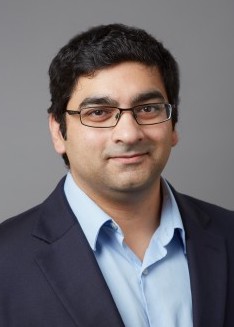2017 Lung Cancer Research Foundation Annual Grant Program

Nikhil Joshi, PhD
Yale University
Research Project:
Investigating anti-tumor T cell function in autochthonous models of lung adenocarcinoma
Summary:
Most lung cancer patients are diagnosed with advanced stage cancer. But, most of what goes on in lung cancer patients occurs before cancer is found. Dr. Joshi uses animal models to investigate early tumors, and to study how immune cells change as lung tumors develop into advanced stage cancers. His goal is to understand why immunotherapy causes immune cells to kill lung cancer in some patients but not others. To date, studies in lung cancer patients show they respond better to immunotherapies when the tumors have a protein called “PD-1 ligand.” The reason for this is not understood, but Dr. Joshi and his team think that “PD-1 ligand” may help the lung tumors to become cancers in the first place by turning off immune cells that should kill tumor cells. However, tumor cells can kill immune cells, and by turning them off, “PD-1 ligand” might actually keep them from dying. Immunotherapy turns the immune cells back on, so “PD-1 ligand” might keep immune cells around so they are able to respond to immunotherapy. This process is strongly tied to whether patients respond to immunotherapy, and therefore Dr. Joshi’s work will help uncover the mysteries of why immune cells in cancer are broken, with a goal of fixing the broken immune cells to help patients survive lung cancer.
*This project was awarded the LCRF Scientific Merit Award, acknowledging the investigator whose proposal was selected for outstanding overall merit by LCRF’s Scientific Advisory Board.
